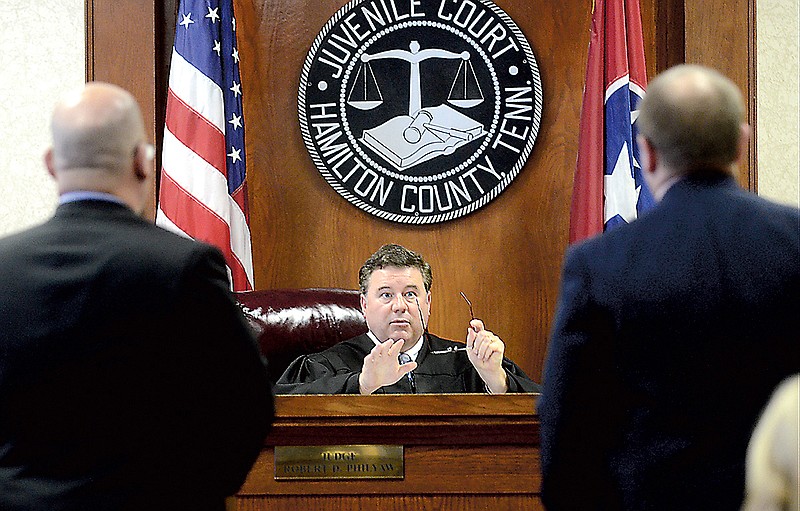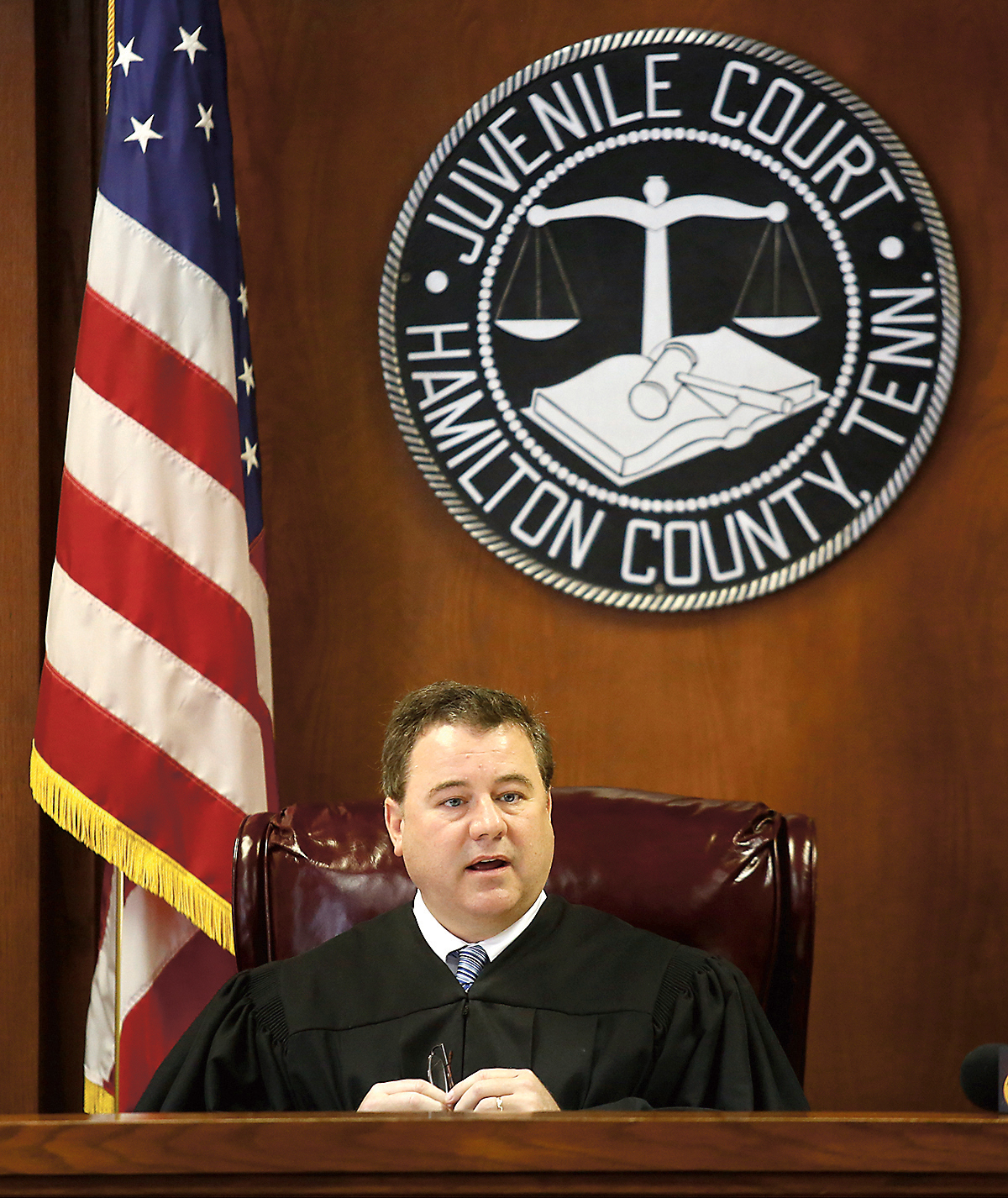It's the look on a teenager's face that Hamilton County Juvenile Court Judge Robert Philyaw remembers.
Philyaw chooses his words carefully because he is not allowed to discuss publicly the details of cases involving juveniles.
"They sit in my courtroom a few just have this blank look of indifference," he said. The particular young man in question had committed a crime that would be serious even for an adult. But he showed no concern for his actions or his situation.
"The kids we see, by the time we get them on a delinquency matter at age 13 or 15 or 16, many of them are hardened," Philyaw said in his conference room at the juvenile court offices on East Third Street. "They have lived through some hard times."
For gang members, in particular, the judge said he senses a feeling of helplessness and hopelessness.
"A feeling of hopelessness that they're never going to make it to age 19," he said. "They're not going to be able to get out of this cycle of poverty and things. And helplessness, because they don't know how, they have no male figures in their lives for the most part."
Most of the teens in his courtroom are suffering from some form of mental or emotional problem, he said.
Juvenile Court Administrator Sam Mair agreed.
"All of them could benefit from therapy, even if just counseling in terms of day-to-day stuff," he said. "These kids have all been through more than most of us can imagine."
Philyaw said he will welcome a new program funded by the state of Tennessee to try to deal with the mental health problems of teens, especially gang members.
Volunteer Behavioral Health, which runs the Johnson Mental Health Center in Chattanooga, recently won a five-year grant from the state to help troubled teens find mental health resources, and here locally it has decided to make gang members a main focus.
Grant outreach coordinator Knetta Jones said her first task is to get teens to see the mental health services as something they need.
"We don't want them to feel like they have to break apart from the gang, but to seek out services that will eventually help them leave the gang," she said.
In general, teens don't want to admit they have mental health problems.
"They feel stigmatized it's not a popular diagnosis," Jones said. "We will try to bridge the gap."
Philyaw said he believes teens with mental problems are very susceptible to gangs.
"These kids are labeled early on either as slow or otherwise troublemakers and put in special ed. And if they don't get help or are not shown how they can succeed and get over these hurdles, many times they end up getting to a level where they get suspended and expelled and fall off the rolls and quit going to school. The gangs are there to welcome them in."
Most teens "want desperately to belong to something," Philyaw said. "And older gang members come in and put an arm around them and they are easy prey." The judge said he sees juveniles being recruited as young as 12 or 13.
Philyaw is convinced that for many juveniles trouble starts almost at infancy, with a lack of social interaction. He said he has had two cases in his courtroom in which infants had been left strapped into car seats, propped up against a wall in the home for long periods of time, so long that the backs of their heads had become flattened.
"We've got young mothers who don't know how to be mothers raising babies," he said.
Besides helping with mental health issues, Volunteer Behavioral Health will assist clients to find jobs and stay in school. That is something Judge Philyaw believes is particularly effective in fighting gangs.
In his speeches to area civic groups, he challenges business owners to make a special effort to offer part-time jobs to teens.
"Let them see the rewards of work, be part of a team and get a sense of belonging," he said. "It may not be your easiest hire, you may have discipline problems, the teens may have transportation problems, but if they will commit to doing it, they may not only end up with a good part-time employee, but they may also change a life."
Contact staff writer Steve Johnson at sjohnson@timesfreepress.com, 423-757-6673, on Twitter @stevejohnsonTFP or on Facebook at stevejohnsonTFP.

